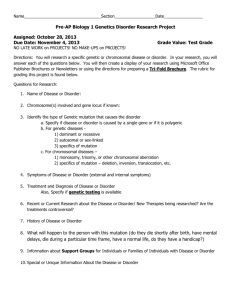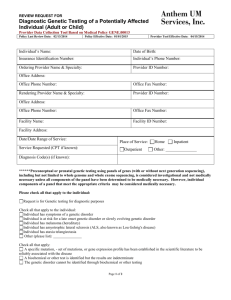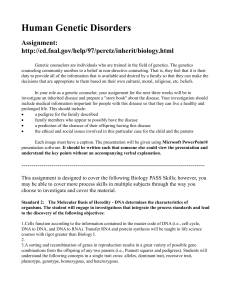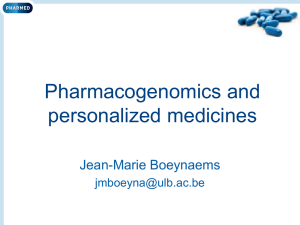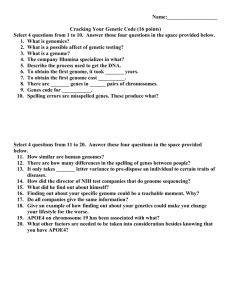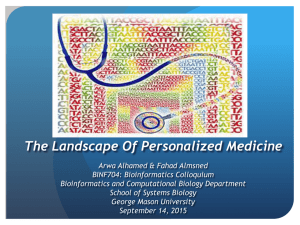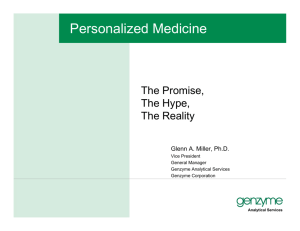Genetic Research Project
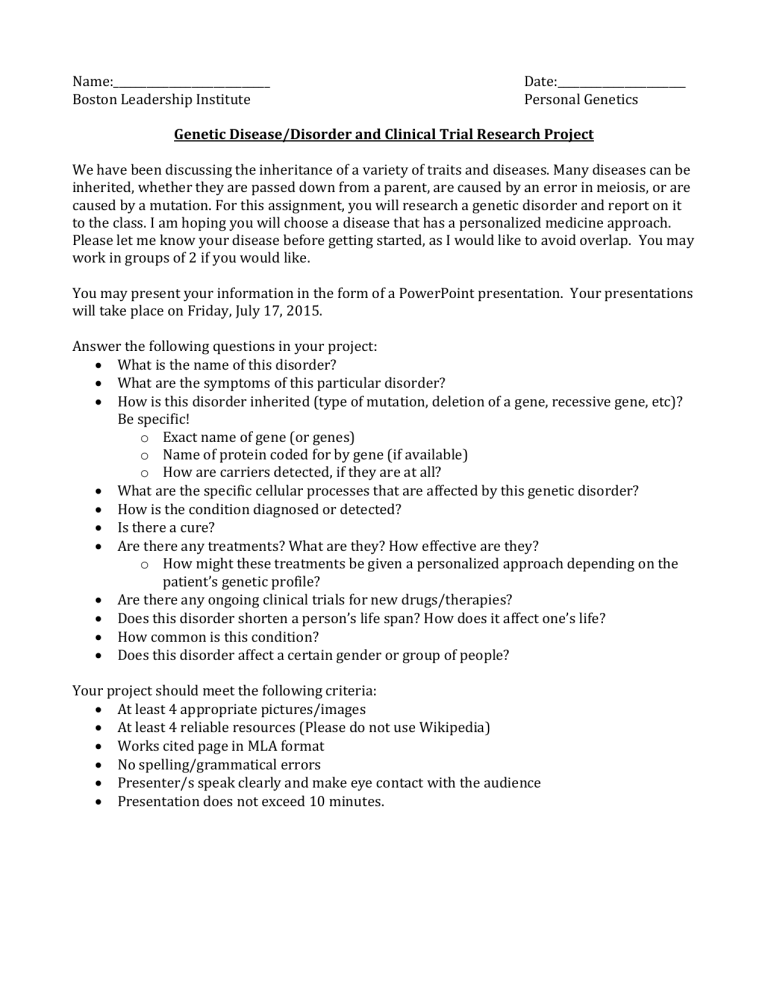
Name:____________________________
Boston Leadership Institute
Date:_______________________
Personal Genetics
Genetic Disease/Disorder and Clinical Trial Research Project
We have been discussing the inheritance of a variety of traits and diseases. Many diseases can be inherited, whether they are passed down from a parent, are caused by an error in meiosis, or are caused by a mutation. For this assignment, you will research a genetic disorder and report on it to the class. I am hoping you will choose a disease that has a personalized medicine approach.
Please let me know your disease before getting started, as I would like to avoid overlap. You may work in groups of 2 if you would like.
You may present your information in the form of a PowerPoint presentation. Your presentations will take place on Friday, July 17, 2015.
Answer the following questions in your project:
What is the name of this disorder?
What are the symptoms of this particular disorder?
How is this disorder inherited (type of mutation, deletion of a gene, recessive gene, etc)?
Be specific! o Exact name of gene (or genes) o Name of protein coded for by gene (if available) o How are carriers detected, if they are at all?
What are the specific cellular processes that are affected by this genetic disorder?
How is the condition diagnosed or detected?
Is there a cure?
Are there any treatments? What are they? How effective are they? o How might these treatments be given a personalized approach depending on the patient’s genetic profile?
Are there any ongoing clinical trials for new drugs/therapies?
Does this disorder shorten a person’s life span? How does it affect one’s life?
How common is this condition?
Does this disorder affect a certain gender or group of people?
Your project should meet the following criteria:
At least 4 appropriate pictures/images
At least 4 reliable resources (Please do not use Wikipedia)
Works cited page in MLA format
No spelling/grammatical errors
Presenter/s speak clearly and make eye contact with the audience
Presentation does not exceed 10 minutes.
Some useful resources to get you started:
Specific Genetic Disorders (http://www.genome.gov/10001204)
Current NHGRI Clinical Studies ( http://www.genome.gov/10004414 )
1. The following introductory articles discuss diseases for which genetic tests have helped determine who should or should not be treated with specific drugs. Articles vary in length and reading level; students need to read only one.
-
-
“ The benefits of personalized medicine ,” The Jackson Laboratory.
“ Frequently asked questions about pharmacogenomics ,” NIH.
- “ Drug Companies Pursue Personalized Medicine Approach ,” by Andrew Pollack, November
2010, New York Times.
2. Nic Volker is a boy, now thriving, who had been terribly sick with a rare, undiagnosed medical condition. He spent most of his life in a hospital and endured over 100 surgeries by age 4. A portion of Nic’s genome was sequenced to look for a genetic mutation that caused his illness. Nic is the first child to receive a diagnosis and successful treatment as a result of genome sequencing.
- “ The First Child Saved By DNA Sequencing ,” by Matthew Herper, January 2011, Forbes.
3. The Beery twins were misdiagnosed with cerebral palsy as babies. Years of medical treatments, mysterious symptoms and a search for answers ensued. After having their genomes sequenced as teenagers, they were accurately diagnosed and successfully treated.
- “ Genome Maps Solve Medical Mystery for California Twins ,” by Richard Knox, June 2011,
National Public Radio.
4. These articles highlight conditions for which personalized medicine is beginning to yield some promising results. As noted in the article, the asthma findings are preliminary and the subject of on-going research.
- “ Cystic fibrosis drug Kalydeco approved by FDA: What does it mean for patients?
,” by CBS news staff, January 2012, CBS News.
- “ Asthma Treatment May Be Headed Toward Personalized Medicine ,” by Jeffrey Norris,
October 2011, University of California San Francisco News.
5. The drug Herceptin can be used to treat certain types of breast cancer, specifically those that make too much HER2 protein. HER2 testing is routinely performed in people diagnosed with breast cancer.
“ HER2 positive breast cancer: what is it?
” by Sandhya Pruthi, April 2012, Mayo Clinic.
6. This article addresses some of debate around personalized medicine.
“ Treating illness and preventing disease with genetic testing ,” by Clara Gaff and Ivan
Macciocca, February 2014, The Conversation.
7. Personalized medicine has the potential to increase or decrease health costs. Students should note the advantages and disadvantages for drug companies to create more tailored medical treatments.
- “ Qiagen expands manufacturing ,” by Stephen Overly, August 2011, Washington Post.

